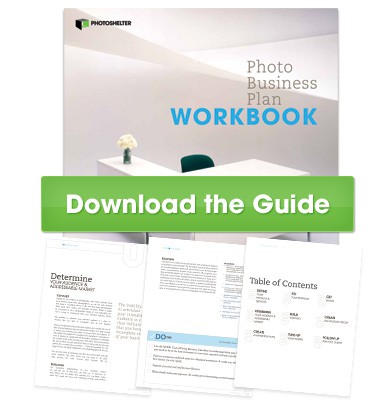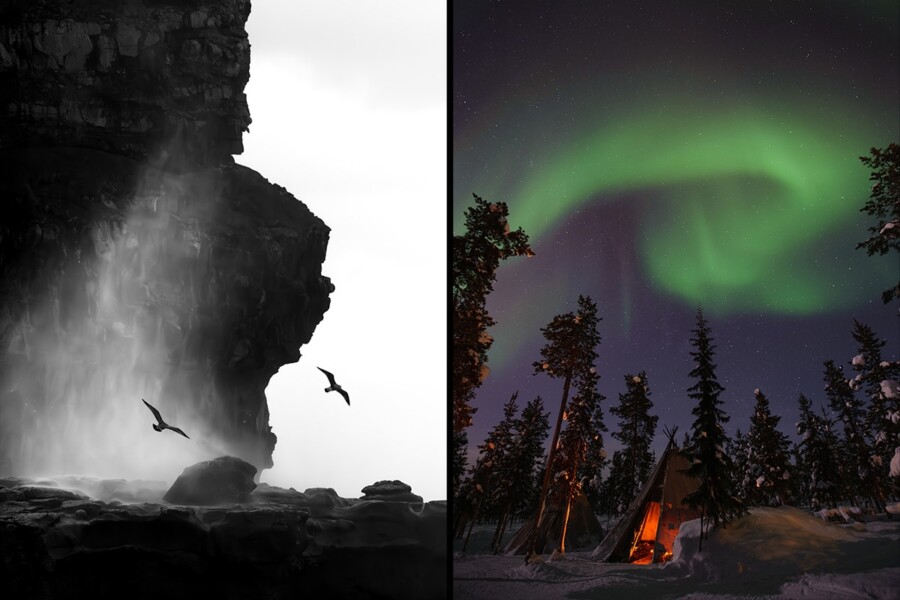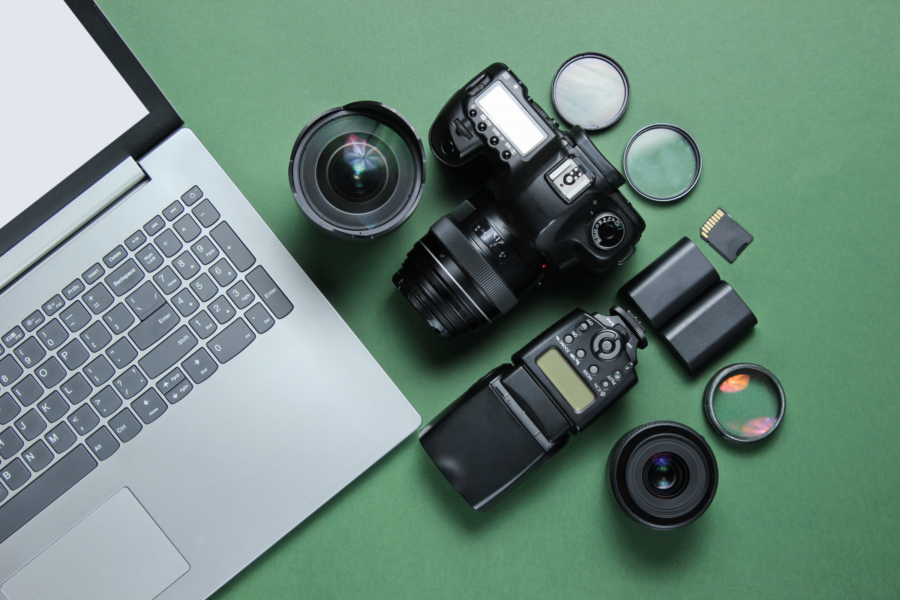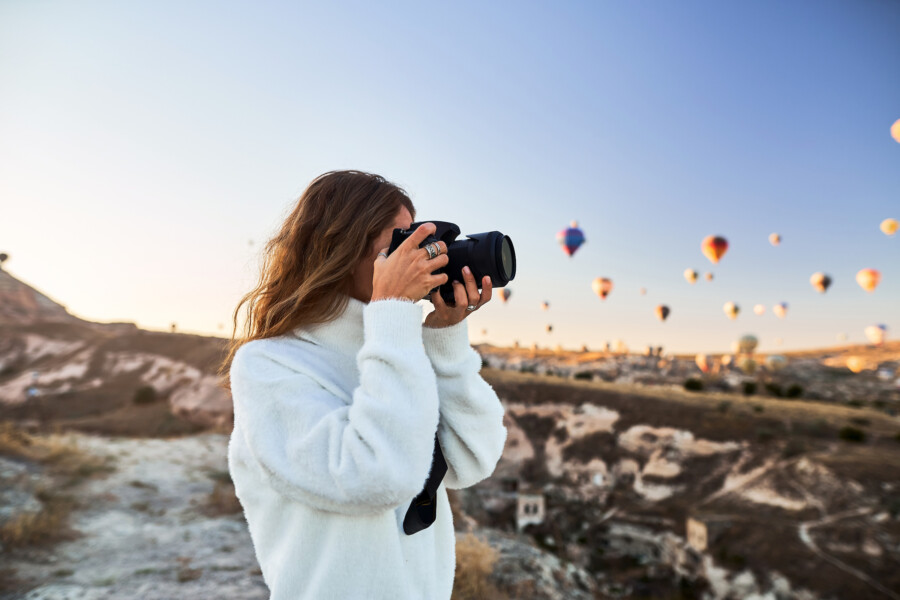Share
The 7 Common Tax Mistakes Made By Photographers
This year, the Federal and State Governments are broke and they’ve hired more auditors in an attempt to generate more revenue. This means that sm...

This year, the Federal and State Governments are broke and they’ve hired more auditors in an attempt to generate more revenue. This means that small independent businesses, like photographers, are facing increased scrutiny of their books.
If you’re thinking you need to get yourself some ninja-skills just to get through tax season, you’re in luck.
Matthew T. Whatley is the “Tax Ninja.” He gets points in my book just for having such a cool business name.
Beyond the awesome name, Whatley is a tax attorney in California, and has made a specialty out of serving the creative arts and small business community – including photographers. With tax season upon us, I thought it might be a good idea to talk to a photographer-savvy tax specialist while there are still a few weeks before April 15th.
“Because [the IRS] is doing more audits,” Whatley said, “people need to have better records and be more organized, and be able to support all of their expenses in an audit.”
Nobody likes, or needs, an IRS audit. I talked with Whatley yesterday (Monday, March 22) in his office in San Francisco and asked him to outline the most common tax mistakes made by photographers.
We caught the whole thing on video…
The 7 Common Tax Mistakes Made By Photographers
1) Not collecting state sales tax.
Photographers who provide a “tangible product” need to collect sales tax from their customers for the service that produced that product.
What’s a “tangible product?” Many photographers are confused about this.
“If you hand over a CD, if you hand over a thumb-drive, if you hand over any thing that is tangible, you just sold a product and as such you have to pay sales tax on products that are sold,” he said.
“At the same time, if you are a photographer and you don’t give them a tangible product, and you just FTP all of the photos that you take for a wedding directly to the client, you’re not actually turning anything tangible over to them so you might not technically have to pay sales tax on the services that you provided.”
“When it’s photography as a service, where you are shooting for somebody else and you hand over just your data, you’re kind of like a wholesaler at that point, so you don’t need to be collecting tax.”
2) Not saving receipts.
Saving receipts and keeping a journal of expenses is a lot of work, and as such, most photographers don’t deal with it. Instead, they’ll push this off until the last minute and then attempt to fill in the blanks later. There is a potential for disaster here, because IRS agents are trained to sniff out information that has been fudged, made up, or likely has little or no proof.
“Simply get a separate bank account or credit card that you use exclusively for business, and never co-mingle your personal and business expenses,” Whatley said. “In these instances, you can show your bank records to an IRS auditor and at that point they can see that they’re all business-related and that they all must be deductible.”
Photographers also drive a lot to perform their jobs, and can write off the milage they rack up each year. But they need to be careful about this, and keep records in a way that will stand the test of an audit.
“When you have vehicle milage, you are allowed to write off 55-cents per mile for all of the milage you drive for your business,” he said. “This does not include commuting to or from your studio, or to and from your principal place of business, but it does include all of the rest of the miles that you drive the rest of the year.”
In order to survive IRS scrutiny, Whatley recommends keeping a small log book in your car that includes the starting and ending odometer reading for each business-related trip, who you went to see, and why it was for business.
He also recommends keeping the same kind of records for camera equipment purchases, being sure to record the date of purchase, exact amount, and what type of gear it is.
Being armed with this information can make filing your taxes (and surviving an audit) much simpler.
3) Writing off the full cost of meals…
“They think that they can write off all of their meals that they eat any time as long as they are doing photography,” he said. “This isn’t the case. You have to have a directly related-to and necessary purpose for the meal to be a write-off.”
Acceptable meal write-offs include:
- Discussing a particular business endeavor with a client
- Schmoozing potential clients
- You are traveling away from home (Travel requires that you be more than 50 miles from home and involve an overnight stay.)
“The IRS treats food differently than any other kind of business expenses because you have to set them off to 50%. So, in other words, If you have a $100 meal then you’re allowed to write off half of it.”
4) Forgetting about self employment tax.
As newspapers and magazines cut staff, more and more photographers are finding themselves in a freelance situation for the first time. Income tax works a little differently when you’re a freelancer, and not a full-time employee for a large company.
“Another thing that people don’t realize, when they become self-employed for the first time, is that the IRS collects social security and medicare taxes on your wages from both you and your employer. So you’re employer pays half and you pay half,” he said. “In instances when you are self-employed they have a thing called the “self employment tax”. This is 15.3% of your total income when you’re self employed. Which is a lot of money in addition to your regular income tax.”
“Photographers who are out there for the first time that make maybe $50,000, they’re going to pay another 6% in tax that they’ve never had withheld from their income in the past.”
Photographers should factor this into their rates and fees, and consider it a cost of doing business, and not a nasty surprise at the end of the year.
5) Improperly writing off home office rent.
This might be one of the biggest red flags on a tax return, so be extra careful how you approach this. Many photographers will attempt to claim their entire apartment or house for anything they do any business in whatsoever.
This is incorrect. Only a portion of the house can be written off, and only if it is used exclusively for business. I’ve even heard stories where an IRS agent will make a house call to see your home space for themselves.
“Saying that you have 70% of your house or apartment used exclusively for business is probably not true and probably going to draw you an audit.”
6) Being disorganized.
You will save money on preparation fees if you are more organized.
“The person who has a vehicle milage log, the person who has all of their expenses and all of their income categorized into all of the applicable tax categories in a detailed and cohesive list… their taxes may take 10 minutes to prepare,” he said.
“A person who is disorganized may take an hour or two hours to teach them how to get their stuff organized.”
“The people that have the second bank account have the advantage in this because they just look to that account for all of their expenses.
7) Using the EZ form.
“Using the EZ form will screw you every time because all it does is ignore all of the potential write-offs that you may have.”
Whatley describes a recent artist client who used the EZ form, and was therefore unable to claim the new 2009 “Making Work Pay Tax Credit” – which is a $400 tax credit.
“The tax laws change every single year, and Congress enacts new laws continuously that may save people money,” he said. “But the only people who save the money are the people who keep up on these new tax trends.”
Another often overlooked tax-savings opportunity involved writing off the payments you’ve made to the state on your federal return.
“The amount of state taxes that you pay, for example, to the state of california, if you make $100,000/year you may pay $7-$8k in state taxes. That total amount is considered an itemized deduction and can be written off against your federal income as an itemized deduction,” he said. “This may reduce your tax liability by $2,000 just knowing this.”
ps: Don’t forget the subscription fees for your photography website and online photo hosting costs are tax deductible business expenses. Check out even more ideas on tax deductions for your photography business at Photo Attorney.
*PhotoShelter does not advise on personal income tax requirements or issues. Use of any information from this article or any other web site referred to is for general information only and does not represent personal tax advice either express or implied. You are encouraged to seek professional tax advice for personal income tax questions and assistance.
 Looking for more business tips to improve your photography business? Over 23,000 photographers have download PhotoShelter’s free 2013 Photo Business Plan Workbook and used it to put together a concrete plan to avoid mistakes and run their business better.
Looking for more business tips to improve your photography business? Over 23,000 photographers have download PhotoShelter’s free 2013 Photo Business Plan Workbook and used it to put together a concrete plan to avoid mistakes and run their business better.
About Matthew T. Whatley, Esq., the “Tax Ninja”
Matthew T. Whatley, Esq. holds a Juris Doctorate from Golden Gate University School of Law and a Bachelors of Science in Social History and Japanese Language from Carnegie Mellon University, with additional coursework at Keio University in Tokyo and Mahidol University in Bangkok. Mr. Whatley is licensed by the California Bar Association.
Grover Sanschagrin is co-founder and Vice President of PhotoShelter. Follow him on Twitter at @heygrover.
Learn something from this post? Share the knowledge and hit the “Tweet”, “Like”, “Share”, “Pin it”, or “Plus” button below.
Are you a professional photographer? Check out PhotoShelter — we make killer photography websites and offer over 100+ professional grade tools to help you showcase, store, share, and sell your images.



